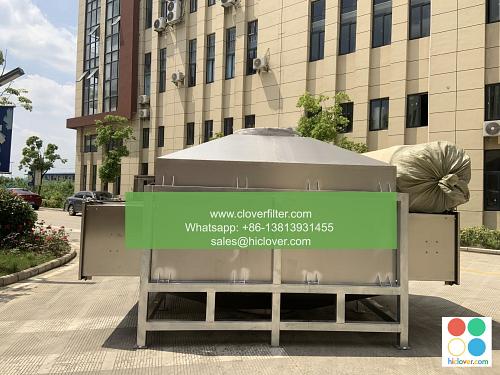Air Filter Durability and Home Health: The Connection

As we spend a significant amount of time indoors, the quality of the air we breathe at home plays a crucial role in maintaining our overall health and wellbeing. One key factor that contributes to good indoor air quality is the durability and effectiveness of air filters. In this article, we will explore the connection between air filter durability and home health, highlighting various application areas and indoor air quality (IAQ) considerations.
The Importance of Air Filter Durability
Air filters are designed to capture airborne pollutants, such as dust, pollen, pet dander, and other particulate matter, preventing them from circulating in the air. A durable air filter can effectively remove airborne contaminants, reducing the risk of respiratory problems, allergies, and other health issues. However, if an air filter is not durable, it may not be able to capture these pollutants efficiently, leading to decreased indoor air quality.
factors Affecting Air Filter Durability
Several factors can affect the durability of an air filter, including:
* Filter material: The type of material used to make the filter can impact its durability. For example, filters made from high-efficiency particulate air (HEPA) material tend to be more durable than those made from lower-quality materials.
* Airflow rate: The rate at which air flows through the filter can also impact its durability. Higher airflow rates can cause the filter to degrade faster.
* Maintenance and replacement: Regular maintenance and replacement of air filters are essential to ensure their durability and effectiveness.
Application Areas for Durable Air Filters
Durable air filters have a wide range of applications, including:
* Residential HVAC systems: Durable air filters are essential for maintaining good indoor air quality in homes, particularly for people with respiratory issues or allergies.
* Commercial buildings: Durable air filters can help maintain a healthy indoor environment in offices, schools, and other commercial buildings.
* Industrial settings: Durable air filters are critical in industrial settings, where airborne pollutants can be particularly hazardous to workers’ health.
* Automotive applications: Durable air filters are used in vehicle ventilation systems to improve indoor air quality and reduce the risk of respiratory problems while driving.
Benefits of Durable Air Filters for Home Health
The benefits of using durable air filters for home health are numerous, including:
* Reduced allergy and asthma symptoms: By capturing airborne allergens and pollutants, durable air filters can help reduce the risk of allergy and asthma attacks.
* Improved respiratory health: Durable air filters can help remove pollutants that can exacerbate respiratory problems, such as chronic obstructive pulmonary disease (COPD).
* Enhanced overall wellbeing: By maintaining good indoor air quality, durable air filters can contribute to a healthier and more comfortable living environment.
Conclusion
In conclusion, the durability and effectiveness of air filters play a critical role in maintaining good indoor air quality and promoting home health. By understanding the factors that affect air filter durability and using durable air filters in various application areas, we can reduce the risk of respiratory problems, allergies, and other health issues. Remember, a durable air filter is an essential component of a healthy indoor environment, and regular maintenance and replacement are crucial to ensuring its effectiveness. Prompt

